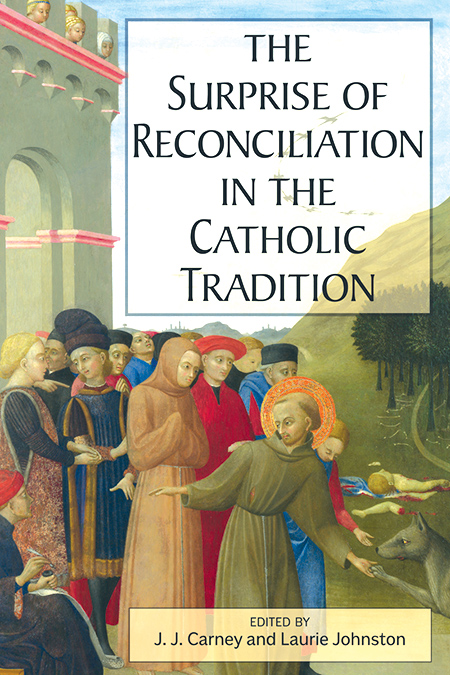
A surprising development in Catholic social thought in recent years has been a teaching of reconciliation as a principle for societies. Global events including ethnic and religious conflict, transitions from war and dictatorship, and persistent legacies of historical injustices like slavery and abuses of indigenous peoples have given urgency to efforts to help people to live together peaceably, both because it is valuable in itself and because it makes democracy and social peace sustainable. Catholics have sought to tap their tradition for historical cases and teachings. Reconciliation, of course, is not hard to locate in the tradition — it is what God accomplished through Jesus Christ, the very center an locus of the faith. Yet, applying this event — and its accompanying virtues of mercy, forgiveness, solidarity, and the like — in social contexts is not obvious and requires some excavation in the tradition.
This new volume, edited by J.J. Carney at Creighton University, and Laurie Johnston at Emmanuel College, aims at this retrieval, finding cases from history and contemporary times that help us to see what reconciliation can look like and offering ethical analysis as well.
Here is the description:
This collection of original essays written expressly for this volume comes out of retreats and meetings on the subject of Catholic social reconciliation. How have ecclesial, liturgical, and ritual resources contributed to peacebuilding during and after socio-political conflicts? The historical periods examined start with the patristic era and go up to such modern events as the troubles in Northern Ireland, restorative justice in U.S. prisons, resistance to the shining path violence in twentieth-century Peru, and reconciliation in Eastern Africa.
Multiple Catholic scholars contribute chapters. Mine own looks at the role of forgiveness in Catholic social thought and in the case of Uganda following its civil war involving the Lord’s Resistance Army. It shows, among other things, that Ugandans forgave one another to a high degree and did so on the basis of their Christian faith — the surprise of reconciliation.
And here are more details on the book.
